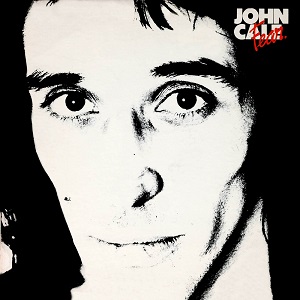The big sound is apparent from the start, thanks to another great riff on the chugging “Begin The Begin”. Even Stipe’s vocals are more upfront, more assured, if no more explicable. “These Days” continues the assault with an anthem made for arenas. They mix their greatest acoustic and electric strengths for “Fall On Me”, the perfect first single. The three different vocal parts complement each other perfectly. “Cuyahoga” is another song addressing environmental concerns—not exactly in vogue in 1986—though it’s not exactly clear what the hell “Hyena” is about, outside of the opening sound effect and the title yelled as a chorus. Just to show they weren’t all serious, the side ends with the wacky “Underneath The Bunker”, a quasi-Greek surf instrumental with bullhorn vocals at the end.
Side two is a little more subdued, at first anyway. “The Flowers Of Guatemala” might be political, or it might not, but it definitely sounds like The Velvet Underground. “I Believe” starts with a jaunty banjo before exploding into another great arena-rocker. “What If We Give It Away?” is more midtempo before they turn it up to thrash speed for “Just A Touch”. “Swan Swan H” gives them a chance to reflect on the folkier sound of the last album, giving budding acoustic players more fodder for their campus hootenannies. And what sounds like a toy wound up too fast provides the lead-in for “Superman”, borrowed from an obscure ‘60s B-side and made into their own.
Lifes Rich Pageant truly brought R.E.M. a little closer to nationwide favor, but it still didn’t set the world on fire. That wouldn’t happen until their next album, leading many longtime fans to insist that this one was their last good album, fulfilling the prophecy of The First Four.
As with the Fables reissue, the album was given the grandiose 25th anniversary repackage in a little box with a poster, postcards, new liner notes and a bonus disc of “Athens Demos”. Every song that ended up on the album save “Superman” was tried out ahead of time, and it’s clear how prepared the band, if not Stipe, was before heading into the studio proper. Mike Mills already has many of his harmonies in place, and Peter Buck only gets lost once per instrumental take. Along with early stabs at “King Of Birds” and “Bad Day”, they even run through some older original songs that display both their garage band roots and their strengths as an actual band.
R.E.M. Lifes Rich Pageant (1986)—4½
2011 25th Anniversary Edition: same as 1986, plus 19 extra tracks


